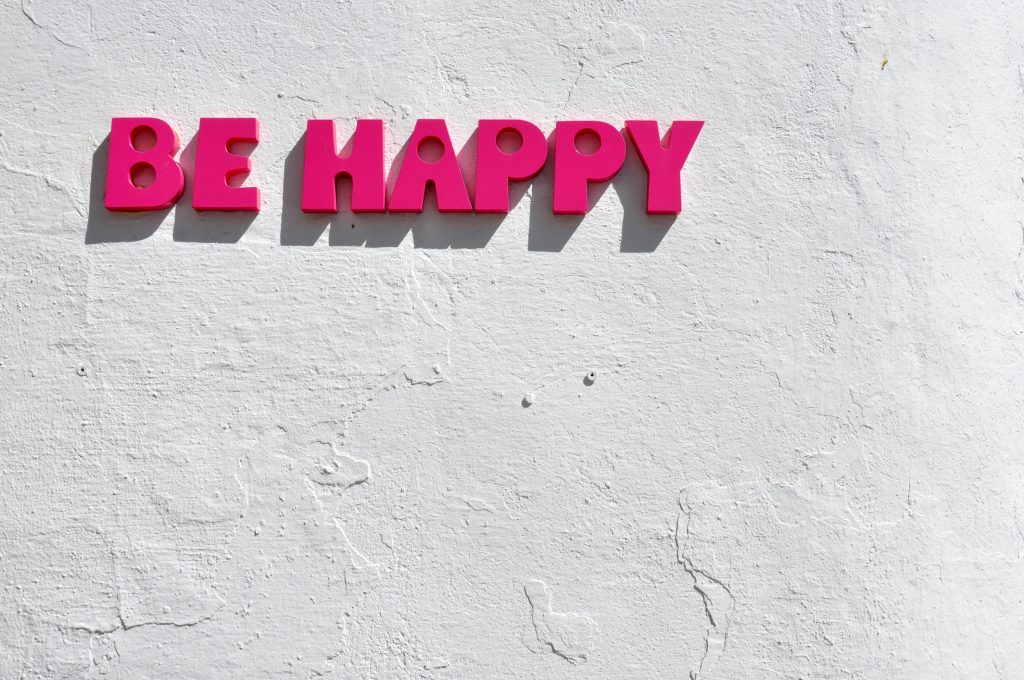A new life awaits
Your body and mind experience a variety of changes when you stop drinking. But depending on how much and how often you drink, these effects can differ in kind and severity. If you have been drinking heavily for a long time, you may notice more noticeable effects when you decide to stop, even though infrequent social drinking may not result in significant changes when you decide to quit.
Knowing what happens to your body when you stop drinking can help you better understand what to expect if you have decided to cut back or stop drinking altogether.
What Happens When You Quit Alcohol?
Timeline
Here is a timeline of what to expect for your physical and mental health when you stop drinking.
The Following Day
The first day is usually the most difficult but also a significant turning point. Your body will begin to detoxify after 24 hours without alcohol, and withdrawal symptoms might occur.
It’s critical to remember that they are transient and typically go away in a few days. However, withdrawal symptoms can be more severe in those with severe alcohol dependence, and they may need medical attention. It is always advisable to detox under medical supervision. Now you have the advantage of home detox services which are more comfortable, affordable and cost-effective.
Following Three Days
You should start to feel more like yourself after three days. But even after heavy drinking for extended periods, some people may still experience withdrawal symptoms, including seizures, delirium tremens (DTs), and hallucinations.
Following a Week
Abstinence from alcohol for a week significantly reduces your risk of seizures. Additionally, there will be a decrease in your chance of developing cardiovascular disease. Drinking alcohol can raise blood pressure and increase cardiac workload. Additionally, your liver will start to heal in the upcoming weeks.
Following a Month
A month without alcohol is a significant achievement. After giving up alcohol, this is typically when people start to feel their best. By now, the majority of the physical withdrawal symptoms ought to have disappeared, and you ought to be experiencing less anxiety and more optimism.
Additionally, the brain starts to make up for some of the deterioration and shrinkage that drinking may have caused. According to one study, the average increase in brain volume after six weeks of alcohol abstinence is 2%.
Following Six Months
You’ll start to see real benefits after six months or so of abstaining from alcohol. Your liver function will have significantly improved, and your chance of getting cancer will be reduced.
Additionally, you may observe several improvements in your physical wellbeing. You might experience an increase in energy, endurance, and a healthier-looking complexion.
Following a Year
At this point, your bone density will increase, and your risk of developing any disease will decrease. Remember that each person is unique and will experience quitting drinking differently.
Although quitting alcohol can be difficult, it’s crucial to keep in mind that the advantages are substantial.

Effects of Quitting Drinking on Mental Health
When you quit drinking, your mental state may change. You may have withdrawal symptoms, trouble falling asleep, irritability, mood swings, and improved mental clarity. The longer you refrain from drinking, the better these changes will eventually start to feel, even though some of them may be uncomfortable for a while.
Your Body Begins to Cleanse
When you initially quit drinking, your body will start the process of detoxifying. Withdrawal symptoms, such as tremors, sweating, nausea, and anxiety, may result from this. Withdrawal symptoms from alcohol can vary in intensity.
Although withdrawal symptoms are not common in people who stop drinking, they are more likely to occur in those who have been drinking heavily for an extended period or regularly.
You Might Experience Sleep Issues
Insomnia is among the most typical adverse effects of alcohol withdrawal. This is due to the sedative effect of alcohol, which makes it possible that you won’t be able to fall or stay asleep after it leaves your system.
This might be more noticeable if you frequently use alcohol to treat pre-existing sleep issues. Regretfully, drinking alcohol can result in poorer sleep quality, even though it may seem to help you fall asleep more quickly.
Thankfully, cutting back on alcohol can gradually improve your sleep, though you may continue to have more sleep disturbances for a while after you stop.
You May feel Moody, Anxious, or Irritable
It’s normal to feel nervous or agitated when you first give up alcohol. This is because alcohol depresses the central nervous system, and when it leaves your system, your body must adapt to the new normal.
When you cut out alcohol, you might experience mood swings in addition to anxiety and irritability.
If you were drinking to control your mood, for example, to temporarily elevate happy feelings or reduce negative ones, you might be more aware of this effect.
The effect on mood is dependent on how much and how long you drink alcohol, just like other symptoms. You might notice a milder, more transient impact on your mood with light or moderate drinking. In cases where you have been drinking heavily or for extended periods, the effects will be more noticeable, and it will take longer for your body’s neurotransmitter systems to rebalance.
You Could Have Clearer Thoughts
Your mind might be clearer after quitting alcohol, which is an additional advantage. This is because alcohol consumption may alter brain chemistry, which may result in cognitive issues.
Alcohol consumption has been linked to several cognitive problems, such as poor memory, sluggish reaction times, trouble controlling impulses, and difficulty focusing. Drinking over time can also lead to neuronal damage and a reduction in brain volume.
According to research, improving cognitive function takes two to four weeks. Individuals discover that their focus and memory are improved. People can plan and organise tasks better and are less impulsive.
You May Feel Happier
One of the best things about quitting drinking is that you might discover an overall increase in happiness. This is because alcohol use can contribute to mental health issues like anxiety and depression.
It is common for alcohol use disorders to coexist with other mental health issues. People with pre-existing mental health issues may use alcohol as a coping mechanism for their symptoms. In certain instances, consuming alcohol over an extended period may raise a person’s risk of mental health problems.
While giving up alcohol won’t guarantee that your mental health issue will go away, it can lessen your symptoms and enhance the effectiveness of your treatment.

Physical Repercussions of Quitting Alcohol
When you stop drinking, there are numerous physical advantages as well as psychological ones.
The following are a few ways that giving up alcohol can enhance your physical health and wellbeing:
The Liver Will Begin to Mend Itself
One toxin that can harm your liver is alcohol. But when you cut back on alcohol, your liver will start to heal, and the damage will begin to reverse.
It Could Change Your Appetite
Alcohol consumption, even in moderation, has been linked to obesity. Therefore, you might notice less of a craving for food after you stop drinking.
You’ll Be at Lower Risk for Some Illnesses
Drinking excessively increases your risk of getting some diseases, like cancer, heart disease, and stroke. However, your chance of contracting these illnesses goes down if you give up drinking.
Your Skin Could Get Better
The unexpected benefit of quitting alcohol is that your skin might start to look better. This is because drinking alcohol can dehydrate you, which can result in skin that is dull and dry. Thus, abstaining from alcohol can make your skin more radiant and hydrated.
You Will Feel More Energised
After the initial withdrawal symptoms have passed, you might discover you have more energy than before quitting. This is because alcohol depresses your body; therefore, when it is eliminated from your system, your body has more energy available.
It is important to note that stopping drinking improves one’s nutritional status, which is a significant factor in the improvements in sobriety that people report.
Additional Advantages of Quitting Drinking
In addition to the numerous mental and physical health advantages of abstaining from alcohol, there are countless other advantages that you might encounter.
You Could Be Richer
You will probably have more money to spend if you give up alcohol, which is one of the financial benefits. This is because drinking alcohol is an expensive habit that can be broken to free up extra money.
You Might Live Longer
One of the biggest advantages of quitting alcohol is that you might live a longer life. Abuse of alcohol can cause cancer and other severe health issues. Thus, abstaining from alcohol can help you prevent these potentially fatal illnesses.
Even moderate alcohol consumption carries significant health risks, according to a meta-analysis, despite suggestions that one or two drinks per day may be beneficial to health. There was a substantial increase in mortality among men and women who consumed four or more drinks per day and two drinks or more, respectively.
You Will Be More Productive
You might find that you are more productive than before if you give up alcohol, which is one of the unexpected benefits. This is because drinking alcohol can lead to tiredness and a decrease in motivation; therefore, you might find that it’s easier to get things done after you stop drinking.
Your Relationships Get Better
Drinking can lead to trust issues, communication breakdowns, and conflict in relationships. Thus, giving up alcohol might enable you to have better friendships and family ties.
Both immediate and long-term advantages come with quitting alcohol. If you’re thinking about giving up alcohol, these advantages might be just what you need to change your mind. Of course, quitting alcohol is not always straightforward, and there might be obstacles in your path. But you can accomplish your goal if you’re dedicated to sobriety.
Get in touch with an addiction treatment service and get the right support for your alcohol problem. Call Freephone at 0800 140 4044 today!
Freephone: 0800 140 4044
Local rate: 0300 330 3040

